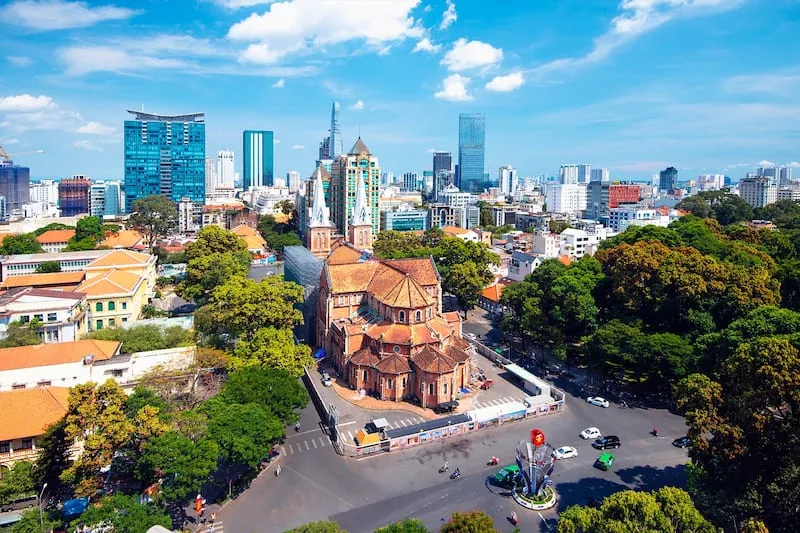
In a talk with Saigon Investment, Mr. Phạm Kim Cương said that during the ten years that he has spent working in Silicon Valley from 2010 until 2020, he has seen the Google Company go to top universities around the world to recruit fresh talent. Many other technology companies also have similar policies to attract high-quality human resources to work for them. With this policy, venture capital funds have an abundant resource base for technology companies in the US, and for creating conditions for new startups to be born. When these startups succeed, they create new startups as well as a new capital funding cycle by attracting new talent. Every year, the US government allows around 85,000 people to immigrate based on their intellectual and professional qualifications to stay and work in the US.
Mr. Phạm Kim Cương also said that to encourage qualified and talented people, some states in the US have special policies for startups. For instance, in the state of Delaware in the US, 90 percent of startups prefer moving there because there is no corporate income tax in the state. In the state of Washington, where Microsoft and Amazon are located, employees do not have to pay any income tax. In the state of California, there is a tax exemption policy of up to 15 percent of corporate revenue for Research and Development (R&D) activities. Cities in Silicon Valley are focused on education and the public school system such as that in Berkeley University or Stanford private schools to produce excellent doctors and engineers.
JOURNALIST: - Sir, Ho Chi Minh City is currently building a new development model for an innovative future city that will require high-quality hi-tech human resources. To achieve this, what incentives or policies are needed to attract and retain such human resources?
Mr. PHẠM KIM CƯƠNG: - In order to attract and retain hi-tech trained human resources for startups with special projects, Ho Chi Minh City needs to pay serious attention to three basic issues. The first is to create specialized network cells at home and abroad. This is to say that we need to sponsor domestic intellectuals who can avail themselves of opportunities abroad such as attending summer school programs that would help them gain the knowledge required at home.
The second is to create opportunities for startups as well as private enterprises to participate in. Silicon Valley startups, and private businesses will be magnets to attract talent from Southeast Asia and Vietnam. The third issue that needs to be resolved is that of creating a strong link with non-profit organizations to develop new technology. Economic groups can contribute capital to these non-profit organizations and later deduct this amount from the enterprise profits.
As a result, non-profit organizations will have the required funds to operate and attract talent who wish to contribute to the common development of Ho Chi Minh City and the entire country. This model will be flexible and revolve around the three vital functioning factors of non-profit organizations, business sponsors, and state agencies, who can then all help in promoting the development of technology.
- Sir, please could you be more specific about the activities of non-profit organizations and how Ho Chi Minh City needs a separate development plan for this type of business?
- As far as I know, currently in Vietnam, the legal system is regulating the non-profit organization's network, and there is no clear distinction between the non-profit activities of the private sector and the public sector. Regarding the non-profit operating system by public service providers and social services in the private sector, there is still a lack of regulatory documents, if any. The issue of non-profit activities has not been clarified and there are still many problems in both theory and practice. Therefore, building and perfecting the legal system for non-profit organizations to provide public and social services in Vietnam is an urgent requirement today.
Many studies show that non-profit organizations provide public goods, services, and social services more effectively than state organizations. This efficiency is reflected in the higher quality of goods and services and lower costs. Non-profit organizations also overcome the bureaucracy often found in the public sector, thus reducing administrative costs. Non-profit organizations are also very thorough in their work and understand the actual needs of the people and respond to them better than state agencies.
Therefore, to some extent, non-profit organizations are a force that helps the state save costs and human resources in providing public goods, services, and social services, directly or indirectly. I think that Ho Chi Minh City should consider and create a working plan for this type of development. Because this is one of the factors that can attract high-quality technology to the country.
Ho Chi Minh City has many favorable conditions to become the center of innovation and science and technology. The establishment of Thu Duc City also creates an attractive environment with many new opportunities. As an ex-pat returning home to work, I really want to have a working environment similar to the one I was used to abroad. Because of my experience, I will not have to spend a lot of time relearning new life and work skills but can focus on the expertise and knowledge learned abroad to work.
- Thank you very much.
Mr. Phạm Kim Cương was a former software engineer for Google and Airbnb. He is passionate about robotics and is currently the founder of a startup for Artificial Intelligence. He also supports youth who have returned to Vietnam to establish a career and dedicate themselves to working here after giving up work in the US.




















